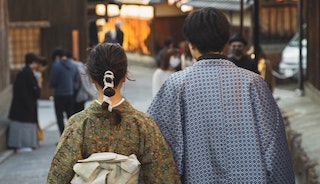Apr 25 (News On Japan) - Japan has seen a dramatic surge in tourism over the past decade, with visitor numbers tripling, bringing both economic benefits and greater intercultural exchange. However, this growth has also led to issues of "overtourism," especially on trains—the country's most popular means of transport—where overcrowding and cultural misunderstandings about behavior have caused concern among locals.
To ensure a smooth train journey, visitors are encouraged to follow key manners. At stations, it's important to respect directional signs and avoid blocking walkways. Prepare tickets in advance and move aside when stopping. On platforms, stay behind safety lines, allow passengers to exit first, and board quickly.
Once onboard, remove backpacks in crowded cars, avoid spreading out or occupying extra seats, and supervise children. Priority seats should be kept available for those in need. Large suitcases are discouraged; instead, travelers are advised to use Japan’s luggage delivery services. If bringing large luggage, avoid blocking doors or aisles.
Passengers should keep their voices low, never talk on the phone, and keep phones on silent. Eating is not banned, but strong-smelling food is discouraged. When getting off, move quickly and don’t block others. Trash must be carried with you, as garbage bins are rare. Be sure to check exit numbers in advance, especially in larger stations.
While these rules may seem detailed, they can be summed up with three key principles: be mindful of people flow, stay quiet on the train, and be considerate of others.















